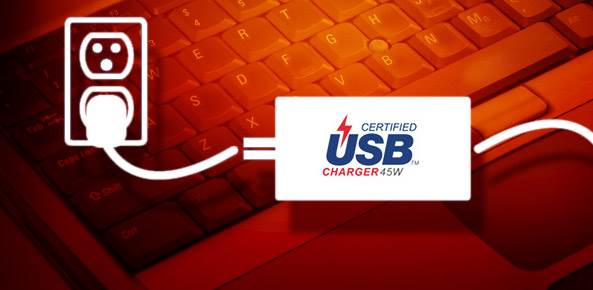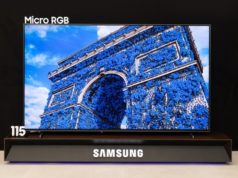
A new certification program is aimed at assuring users that USB Type-C chargers won’t damage their devices or fail to provide adequate charges. Announced yesterday by the USB Implementers Forum (USB-IF), the program sets compliance standards for original equipment manufacturers of USB-C products.
Introduced in 2014, the USB-C standard for universal serial bus connections is a more compact type of connector that’s easier to plug in and supports faster charging and data transfers than older model USB cables. When used with an adaptor, the USB-C connector can also support non-USB uses such as audio and Ethernet.
The use of the more flexible USB-C charger is expected to increase as the number and variety of electronic devices worldwide continues to grow. USB-C ports will be used for more than 2 billion devices by 2019, according to the analyst firm IHS.
‘Last Wire You’ll Ever Need’
“From displays to smartphones and docking stations, the industry is aligning behind USB Type-C and USB power delivery as the last wire you’ll ever need for faster charging,” USB-IF CTO Rahman Ismail said yesterday in a statement.
The new certification standard will “make it easier to share device chargers across the compliant USB Type-C landscape,” said Jeff Ravencraft, the organization’s president and COO. It will also enable users to “carry less equipment without sacrificing battery life or flexibility,” he said.
Non-compliant USB Type-C connectors have not lived up to safety standards and have been blamed for causing damage to devices they’re plugged into. Non-compliant cables can also create problems with effective device charging.
In addition to assuring buyers that the USB-C cables they purchase are safe to use, the new certification standard will also help reduce the amount of electronic waste heading to landfills, according to the USB-IF. The standard marks another step beyond the early days of mobile electronics, when different devices required many different types of connectors for charging and data transfers.
USB-C ‘A New Paradigm’
“USB Type-C represents a new paradigm that will turn the interface market on its head,” IHS technology analyst Brian O’Rourke wrote in a report last year. “[I]t will offer up to 100 watts of power delivery, giving device vendors the option of a single cable to deliver data, audio, video and power.”
In fact, several new smartphones hitting the market soon, including the Moto Z Force, are expected to eliminate the standard 3.5-millimeter headphone jack for audio in favor of a USB-C port. Apple’s iPhone 7, likely to be released in September, is also reported to replace the audio jack with that company’s proprietary Lightning connector.
Benson Leung, a Google engineer who has reviewed a number of USB-C connectors online for compliance or non-compliance, welcomed the new certification standard in a blog post yesterday on his Google Plus page.
“As of late, there’s been a lot of bad chargers on the market as well as bad USB cables,” Leung noted. “Hopefully with a robust certification program, consumers will be able to trust #USB #TypeC and Power Delivery chargers bearing the certified USB charger logos.”


![[CES 2026] A Care Companion for Family Health and Safety –](https://loginby.com/itnews/wp-content/uploads/2026/01/1768059032_CES-2026-A-Care-Companion-for-Family-Health-and-Safety-238x178.jpg)




